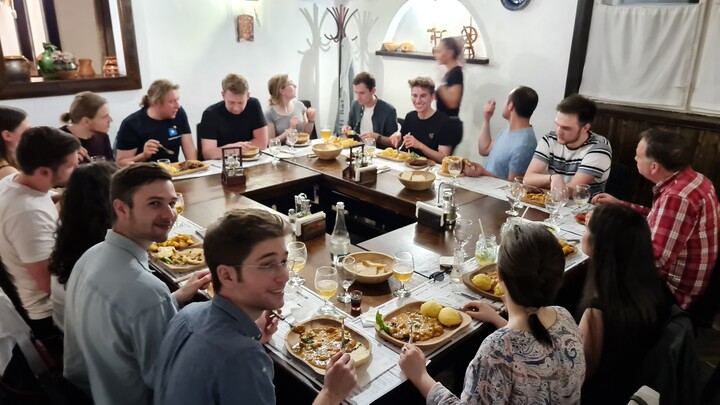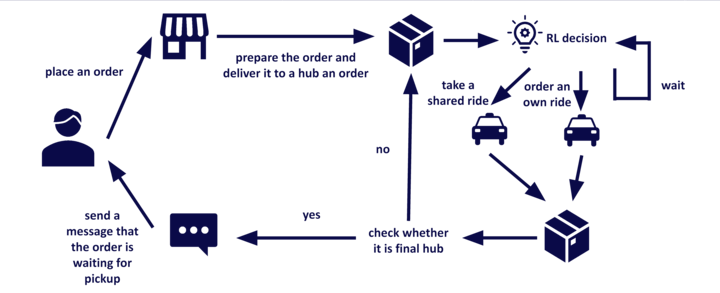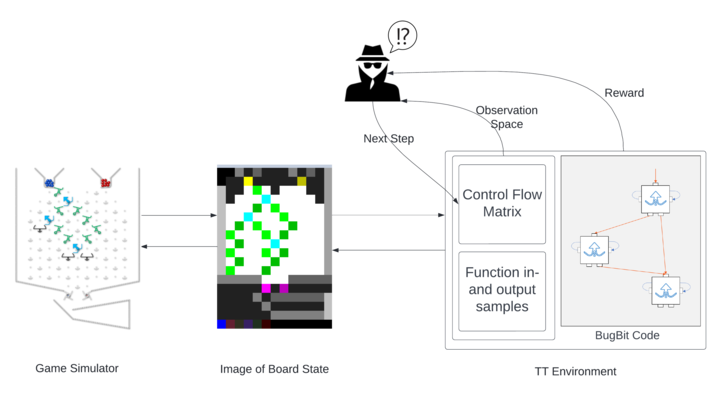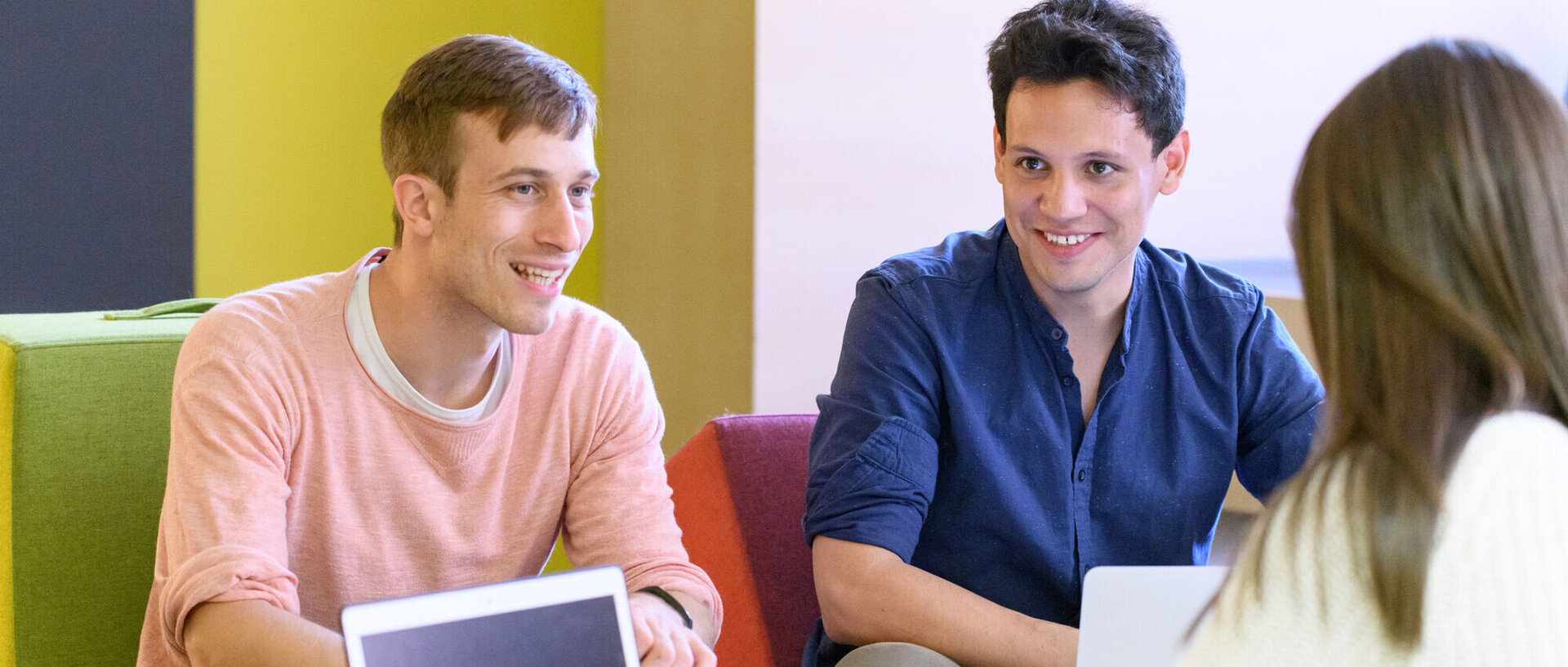Project “Hitchhike Box” and “Board Game AI”



Hard Facts:
Period: 07.02.2022–07.08.2022
Credit Points: 12 ECTS
Team Size: Two teams of six students: four students from Mannheim (Business Informatics, Mannheim Master Data Science) and two students from Cluj-Napoca (Informatics), respectively.
Evaluation Formats: Written individual reports, team presentations, GitHub repo.
Supervisors: Dr. Christian Bartelt, Jannik Brinkmann, Andrej Tschalzev.
Project Purpose: Gaining hands-on experience working in international teams and adhering to agile development practices, finished executable project, technical knowledge about reinforcement learning.
Project Description FSS 2022:
Hitchhike box: Teaching a Parcel to Catch Taxi Rides
Our aim was to implement a more cost-effective and environmentally-friendly solution to deliver parcels from companies to customers by letting the parcel ‘hitchhike’ with taxis that are already in traffic. This reduces transport costs, reduces pollution and reduces traffic congestion.
To train this ‘intelligent parcel’, we used reinforcement learning on historical taxi traffic data from Manhattan.
Board Game AI: Teaching an AI to Solve Logical Puzzles [bold]
In the game Turing Tumble, players construct mechanical computers that use the flow of marbles along a board to solve logic problems. As the board and its parts are Turing complete, which means that they can be used to express any mathematical function, an intelligent agent taught to solve a Turing Tumble challenge essentially learns how to write code according to a given specification.
Following this logic, we taught an agent how to write a simple program according to a minimal specification, using an abstracted version of the Turing Tumble board as reinforcement learning training environment. This is related to the emerging field of program synthesis, as is for example applied in GitHub’s CoPilot.
Academic Excursions:
“We made new friendships and memories that will last for long. Moreover, we learned a lot (about ourselves, teamwork and in the area of artificial intelligence and programming). Thank you to the InES, as well as to the universities of Mannheim and Cluj-Napoca!”
-Denisa Dragota, team ‘Hitchhike Box’
Most of the work was done online, but we also had the chance to work together on-site for two weeks. This was a very intense experience which did wonders for both our team spirit and the progress of our respective projects.
Cluj-Napoca
For one week in May, we worked together in Cluj-Napoca. It was an intensive week of getting to know each other personally, working hard, sightseeing and also experiencing a new culture. We had the chance to work at the offices of MHP in downtown Cluj, where we enjoyed great amenities and a phenomenal view over the city.
The week started with a 24h hackathon and continued with a traditional Romanian dinner, an explorative walk through sunny Cluj over the weekend, a hike in the Cheile Turzii, 9am coffee at MHP headquarters followed by intense hours of work, a visit of a football match that ended in the victory and championship of Cluj's local team, and evenings with music and stories in the heart of Cluj – these were just some of our activities together.
In the end, the days seemed to go by faster than we would have liked, and the week concluded with a presentation of our projects and the results of the week at NTT DATA headquarters in front of sixty second year Informatics students of Babeș-Bolyai.
All in all, we were on our feet 24/
Mannheim
In July it was time for the students from Cluj to visit the Mannheim students. Apart from continuing to work on our projects, we went hiking along the Weinstrasse, visited some of Mannheim’s bars in the famous Jungbusch, tasted German beer and food (Mensa too… ), and took an evening trip to beautiful Heidelberg.
Working in one of the university’s rooms in the Mannheim castle made the exhausting hours of work pass faster. Over the course of the week, we made strong headway in both the theoretical foundation of our models and their implementation, thanks to intense mentoring by our supervisors, Christian Bartels, Jannik Brinkmann, and Andrej Tschalzev. This would then prove to be the deciding cornerstone of the last weeks of sprints before the finish line in August. As we worked the days away, it felt increasingly incredible we had just met in February, and had mostly interacted online, for the presence of the Romanian team members in Mannheim seemed only natural and right. While everyone breathed a sigh of relief as the final version of our projects was uploaded to GitHub, we will certainly miss our colleagues, and hope to visit each other in Romania and Germany soon.
Why Should You Apply?
“Connecting with students from another country and doing international teamwork, both online and on site, was a challenging but extremely motivating and fun experience.”
~Maren Ehrgott, team ‘Hitchhike Box’ FSS 22
-European Team Project:
Cooperation with Universität Babeș-Bolyai in Cluj-Napoca, Romania:
– Learning how to make international remote teams work.
– Two weeks of academic excursion to Cluj-Napoca/Mannheim.
– International friendships to last a lifetime.
“Within the team, fostered by productive and regular feedback from our project supervisors, the feeling of commitment, progress and overall helpfulness were high. Overall, I’d say this was the first group project in my life I’ve genuinely enjoyed. 10/
~Julie Naegelen, team ‘Turing Tumble’ FSS 22
-InEs’ Design-Oriented Approach to Prototyping:
– Projects fitting interdisciplinary background of MMDS students.
– Gain hands-on experience in agile project management within a motivating environment with many opportunities for individual feedback and growth.
– apply as an individual or as team.
